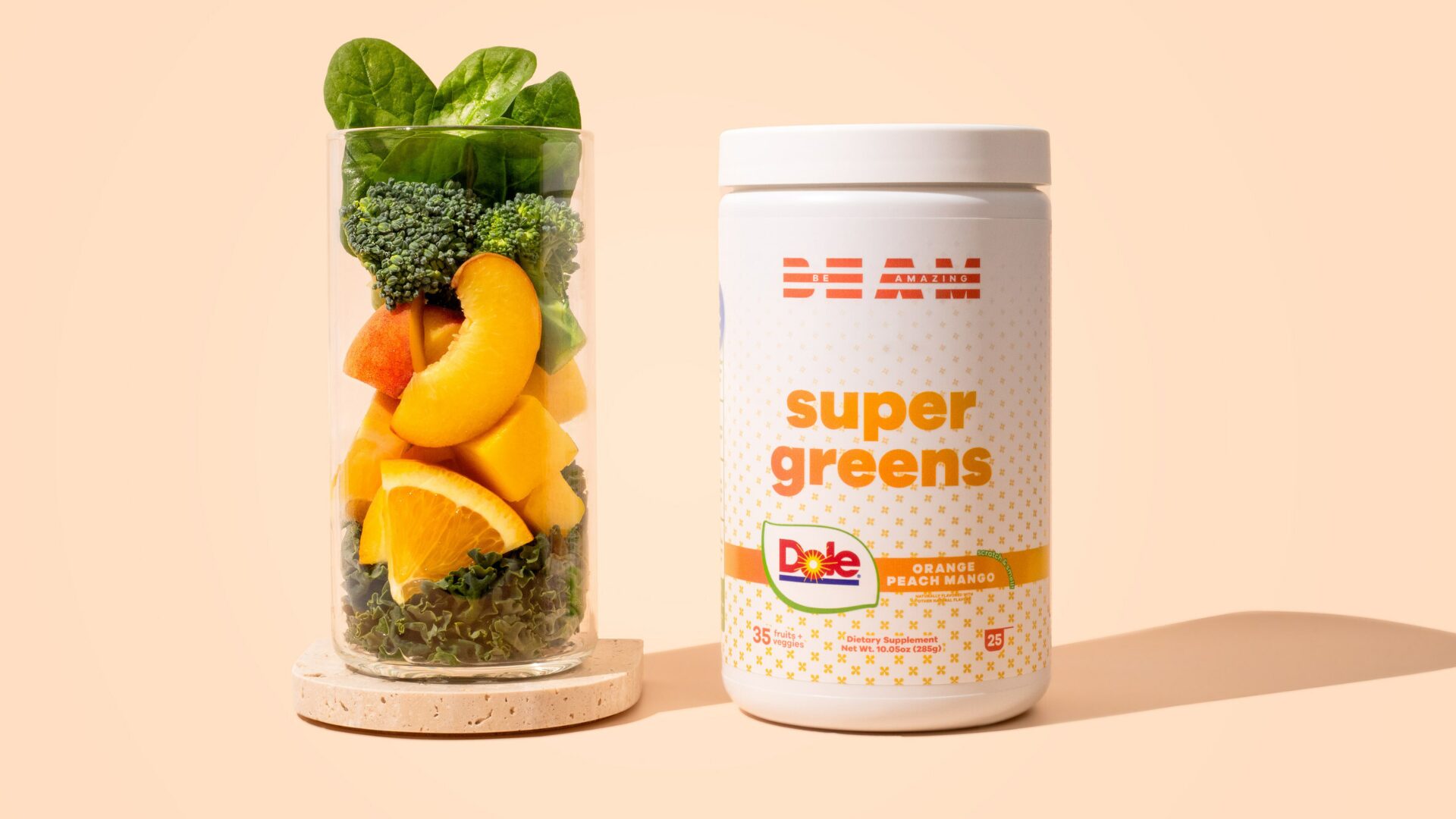Last week, clean supplement company BEAM launched a new product produced in partnership with Dole. The new orange, peach, and mango flavored product — dubbed BEAM x Dole Super Greens — includes 35 fruits and vegetables per serving, prebiotic fiber, digestive enzymes, antioxidants, essential vitamins, and minerals, without artificial sweeteners or colors.
The partnership is the second for BEAM, which leveraged beverage nostalgia for its SunnyD Super Greens collaboration with Harvest Hill Beverage Company in 2023.
“With more and more consumers prioritizing wellness in their routines and joining the hunt for products that can help them feel better day-to-day, any forward-thinking food companies choosing to expand into the supplement category are going to be able to directly help their consumers address these evolving needs in a targeted way,” Hungryroot CEO and Founder, Ben McKean, told FI.
The meal planning tool and grocery service expanded into the vitamin and supplement categories in recent years due to our ongoing requests from users.
“It was a natural evolution,” McKean added.
“Now that supplements are finally emerging out of just the health category and becoming a key factor in discussions around general wellness, we are seeing a more holistic approach to how consumers approach nutrition and diet that encompasses everything they are consuming.”
Food Brands Tapping into Supplements
The partnership adds Dole to the growing roster of food companies pumping products into the supplement aisle.
Among these are companies like Kellanova, which extended its portfolio with RXBAR, and Nestlé S.A. with its nutritional drink line BOOST.
“The lines between the food and supplement industries are blurring, with consumers increasingly viewing them as interconnected aspects of their overall health and wellness,” Inna Yegorova, Dietary Supplement Compliance Expert, and owner of Inna Consulting, told FI. “Food companies are recognizing this convergence and are strategically expanding into the supplement space to meet evolving consumer preferences and market dynamics.”
Further Convergence is Likely
Both McKean and Yegorova believe the expanding relationship between food brands and supplements is likely to continue as an evolutionary path forward.
“With the continued rise in demand for these offerings that we have seen from our users, we don’t anticipate this trend to slow down any time soon,” said McKean. “In theory, the more that these consumers experience the direct benefits that come with a more health-conscious lifestyle, the more they will continue to seek out products such as vitamins and supplements.”
However, to lock in long-term brand loyalty, food companies must prioritize transparency to ensure that their food-supplement innovations deliver on their wellness claims.
“The real key to keeping this trend alive is ensuring that these food brands remain intentional in ensuring their supplement and vitamin products are high-quality and effective,” said McKean.
From a more medical standpoint, supplements are meant to help people remedy nutritional deficiencies based on their specific health needs, Dr. Raj Dasgupta, Chief Medical Advisor for Sleep Advisor told FI.
“I’d recommend these food brands collaborate with healthcare professionals in this transition to both enhance their credibility and make sure whatever supplements they’re putting on the market are safe and high-quality for their existing customers and target audience,” said Dasgupta.











